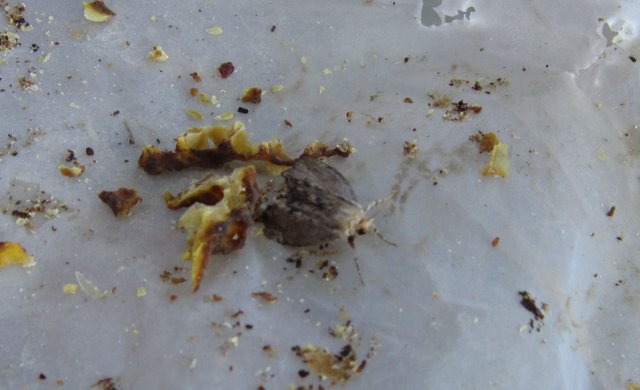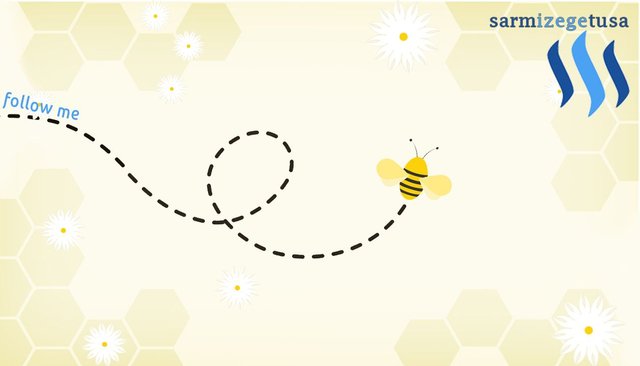Let it bee …. The story of my parents’ passion for beekeeping Part 7
Let it bee …. The story of my parents’ passion for beekeeping Part 7
I enjoyed spending the last sunny weekend of the fall, at home, in the countryside, with my parents. The temperature was really warm and pleasant, and the sun delighted us with his energy.
There are many things to do before the winter makes its appearance; from harvesting the remaining fruits and vegetables to preparing the bees for winter.
So my parents were a little busy, I mean, they are always busy and say that work will be endless, and you can always find something to do. They enjoy working, I think it’s kind of an addiction to them. But I know taking care of bees gives them pleasure and never complain when it comes to bees. But maybe, they should have a little more free time, just for themselves. Anyway, I tried to help a little, mostly with harvesting fruit and vegetables and assisting my parents at the apiary.
The weather was nice and bees got an opportunity to gather more food before the winter will settle in.

I helped my father with the preparation of bee hives against mice and you can read about it here.
We also applied a treatment against bee mites, which I will tell you more about in my future post.
And my mother, among other activities, cleaned a body hive, which was previously attacked by the wax moth, and left alone, because they had no time to get to it.
The wax moth is one of the honeybee pests, causing damage to the hive by eating honeycombs. There are two species that attack the bee hive: Achroia grisella and Galleria mellonella, both observed for the first time in North America.
Although, the wax moth does not attack direct the worker bee or the brood, they cause a lot of damage by spreading diseases and eating wax.
They also eat the wood from frames.
My parents discovered the hive attacked by the moth and moved it to a new home, with a new house. But they didn’t have time to clean the old body hive and collect the wax.
The wax moth attacks at night, only in the summer, by penetrating the hive and lying between 400-1800 eggs in 100-200 piles.
After 10 days, the larvae hatch and after 30 days they stop eating and go into the nymph stage.
After 14 days of nymph stage, they develop into the adult moth. In favorable weather conditions 30°-34°C (90-95 Fahrenheit), the entire life cycle lasts about 44 days.

One way to prevent the wax moth, is to maintain a clean hive and to constantly check for any kind of abnormalities.
They mostly attack weaker colonies and so was the case with our colony. It was a weak colony which had a drone-laying queen.
The drone-laying queen lays only eggs which will develop into larvae, pupa and eventually adult drones. The only job of the drone is to mate with the queen during seasonal mating flights, so there aren’t many of them. A colony that has a drone-laying queen is very weak as it cannot produce worker bees which help the colony thrive.
This is how we can determine if the queen laid drones; the larvae in the honeycombs are higher than the worker bees’ larvae.
My mother collected the honeycombs and cleaned the body hive. The wax will be filtered of any impurities by boiling the honeycombs, and then sent to place were it will be processed and transformed into new honeycombs. The new honeycombs will be placed into new hives, and bees will grow them and deposit honey.
Thank you for reading!

good post
Interesting post! My parents also have bees. I did not know about the wax moth!
Unfortunately, bees have many pests and enemies.
Great information about queens who only lay drone eggs. I didn't know that.
Glad you found it useful :)
Good information on these moths that attack the hive. Just another reason why maintaining your hives is so important.
Yes, the only way to prevent them is by ensuring a clean home for the bees, and to constantly check colonies.
Honey bee...
Honey bee <3
excellent post, following you!
Thank you so much!
Upvoted and also resteemed :)
Thank you for reading and upvoting and resteeming! :)
Wow!
Growing up I was always scared of bees and never would have thought they could be threatened by something so seemingly harmless as a moth.
Very interesting read :)
I was also scared because we had them in our back yard, but with time I realized that they won't attack me, unless they feel threaten by me. Now I can spend hours around them and not feel scared. We need to protect them, not only for our own good, but for the whole planet.
Thank you for reading :)